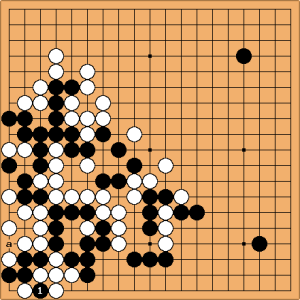Many years ago, when I have just started out on my own and opened my own practice ( in the 80s) I met a patient in his sixties. He was a very gentle person, spoke with a soft voice and he came for vague symptoms of aches , inability to sleep well. I thought he was suffering from depression, and after a few visits, I decided to delve deeper into his history and asked about his family. He finally admitted he was very depressed since he is staying with his son, and that his son worked till very late very day, and hardly had time to speak to him. The main problem is his daughter -in-law, who had always nagged him about his ways of doing things, and made his life very miserable.
One day he told me that he felt like ending his life and asked me whether I had any medicine that could help him. I told him that no one had any right to end the life of anyone including one’s own life, since life is so precious.
I asked for his son’s office number. He gave to me but asked me not to speak to his son about his condition. He also did not want any referral to any psychiatrists who would be more qualified to handle such cases.
As all you know, doctors are bound by confidentiality clause. Anything that patients tell us stay within the four walls. I have always practised this and had always respected the wish of my patients not to inform their families about certain things.
But in this case, knowing that the threat of suicide was real, and that he should perhaps be seen by a more qualified person, I decided to call the son and let the son know about the father’s feelings and his conditions.
This was one occasion that I might have gone against a person’s wish , for his own good. In the end, the son had a long talk with the wife, and the wife apparently realised how her words had hurt the in-law and promised to mend her ways.
I had a visit 2 months after from the patient and his son, and they expressed their gratitude about my help in solving a potentially life endangering situation. This was like a fairy tale ending, and all ended well.
Rules and regulations, as well as laws, are there to serve the interest of the people. There are laws to safeguard private interest, but private interest should always be subjugated to the bigger public interest. There are occasions that certain rules may need to be waived in order to serve a bigger good.
That is why sometimes, those who had committed crimes are actually let off if they are willing to become crown witnesses against bigger criminals and culprits. Some are even given protection and change of identities, in cases involving big time criminals.
We all know how Malaysians feel about the Cowgate incident where hundreds of millions of government money were allegedly involved in certain scandalous dealings. Some of those involved were now charged in courts after much public pressure.
This prosecution of those involved in Cowgate, albeit after much delay and public outcry, means that those allegations contained certain truth, otherwise there would be no court cases against these people.
If that is the case, why arrest and charge the whistle blower who is doing a service to the whole nation and the rakyat by digging all the ‘dirt’ .
I think the government did something very wrong by charging whistle blowers.
However one looks at it, one cannot escape the conclusion that this has a lot to do with politics. Many view this as political persecution against someone who is actually doing a big favour by exposing the wrong doing. By prosecuting this whistle blower, the message that is being sent out is that the government is trying to silence people who may want to right certain wrongs; a message that the government may be trying to protect more wrongs being exposed.
This prosecution may give rise to a perception that those in power are not really interested to clean up, but rather are more inclined to cover ups.
They may win the court case and put the person involved in jail, but in doing so, they are actually ding themselves a disfavour and risk losing even more support among the middle class and the civil society.
It is like in the game of GO (WeiQi, a chess game with white and black chess pieces play on a board) where a player who is too obsessed to win certain small battles on the chess board but lose sight of the big picture, and in the end, lose the whole game.





Doc,
ReplyDeleteAre you surprised? Fight against corruption? JUst ask around whether anyone believes that Whistle Blower Act or whatever notwithstanding...